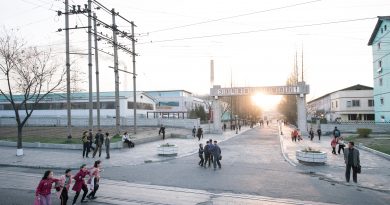Focus on Shadow Economies: Russia
By Daniel D’Amico
Staff Writer
Black market dealings in Russia are estimated to be about $49.04 billion in value, and this is especially prominent in the education system. Many achieve success and influence by taking advantage of the system to get titles and positions that they did not earn.
In 2015, Sergei Naryshkin, chief of staff in Putin’s administration, was exposed as a plagiarist. More than half the material of his dissertation that earned him a doctoral degree was taken from other sources. Naryshkin was suspected of paying someone to write his thesis for him. Despite what would become a scandal in other countries, Sergei went back to doing his job as if nothing had ever happened.
Those accused of fraud often include politicians, judges, prosecutors, police officials, and heads of universities. More specifically, there have been accusations of plagiarism against the minister of culture, the governor of St. Petersburg, and the head of the country’s top federal investigating authority.
The types of things provided range from dissertations to monographs to fake academic journal entries. Dissertation writing firms usually hide under the false names and seek out clients by showing them why they need a certain degree. They offer dissertations for about 100,000 rubles, or $1,500. There are also book-length monographs as well as bibliographies of fake journal articles for around $25,000. This also includes the bribing of dissertation boards to get their dissertations approved.
Many are allured by the idea of a degree as a marker of academic status. However, Dissernet is a volunteer organization which aims to expose people who have plagiarized. They identify and shame government workers, academic administrators, and members of the Russian elite who have not legitimately earned their degrees. They use software that looks for sections of text that resemble previous works to some extent.
Andrei Rostovtsev, a physicist and co-founder of Dissernet, developed the software they use. In an article in Slate, he explains it further the software chooses papers from the library of defended theses and cross references it with other documents to see if there are similarities. If there are, it flags the paper and then volunteers check it by hand.
The Slate article highlights how Dissernet’s main focus is restoring the idea of reputation in Russian society. Their efforts have led to the discovery of 5,600 suspected plagiarists and convincing reports on about 1,300 of them. They have also found that one in nine members of the State Duma paid others to write their dissertations. In fact, four percent of dissertations in the country were plagiarized and around 20-30 percent were purchased on the black market.
Igor Igoshin, a Duma member who earned an economics degree by changing a paper on the chocolate industry into one on the meat industry, was one such plagiarist exposed by Dissernet. Another was Yuri Tsurapkin who submitted a medical article on breast cancer. This was taken from a paper on stomach cancer as well as a study of cancer in dogs and rats.
Even President Vladimir Putin was accused in 2006 of plagiarizing some of his thesis in economics, but it changed nothing about his reputation or how his presidency ran more generally Another case in which the plagiarist went on largely unscathed is with the culture minister, Vladimir Medinsky. He was accused of being a fraud due to a number of errors in his dissertation. The review of his work was at first delayed, and then put on hold completely.
In 2012, the head of a prestigious academy in Moscow, Andrei Andrianov, faked various publications and printed nonexistent academic journals. The Russian Ministry of Education and Science formed a commission to look into the problem. Ultimately, they closed the Moscow State Pedagogical University that approved his degree. There were also about 800 other dissertation boards that they either closed or froze.
In an article in Phys.org, geneticist Svetlana Borinskaya states, “Russia is losing brains,” referring to the migration of young qualified students to foreign universities. These black market dealings have led to a decrease in qualified workers in a variety of fields. While government action has been helpful, Dissernet along with other third party groups are picking up the slack as far as raising awareness about the plagiarisms is concerned.


